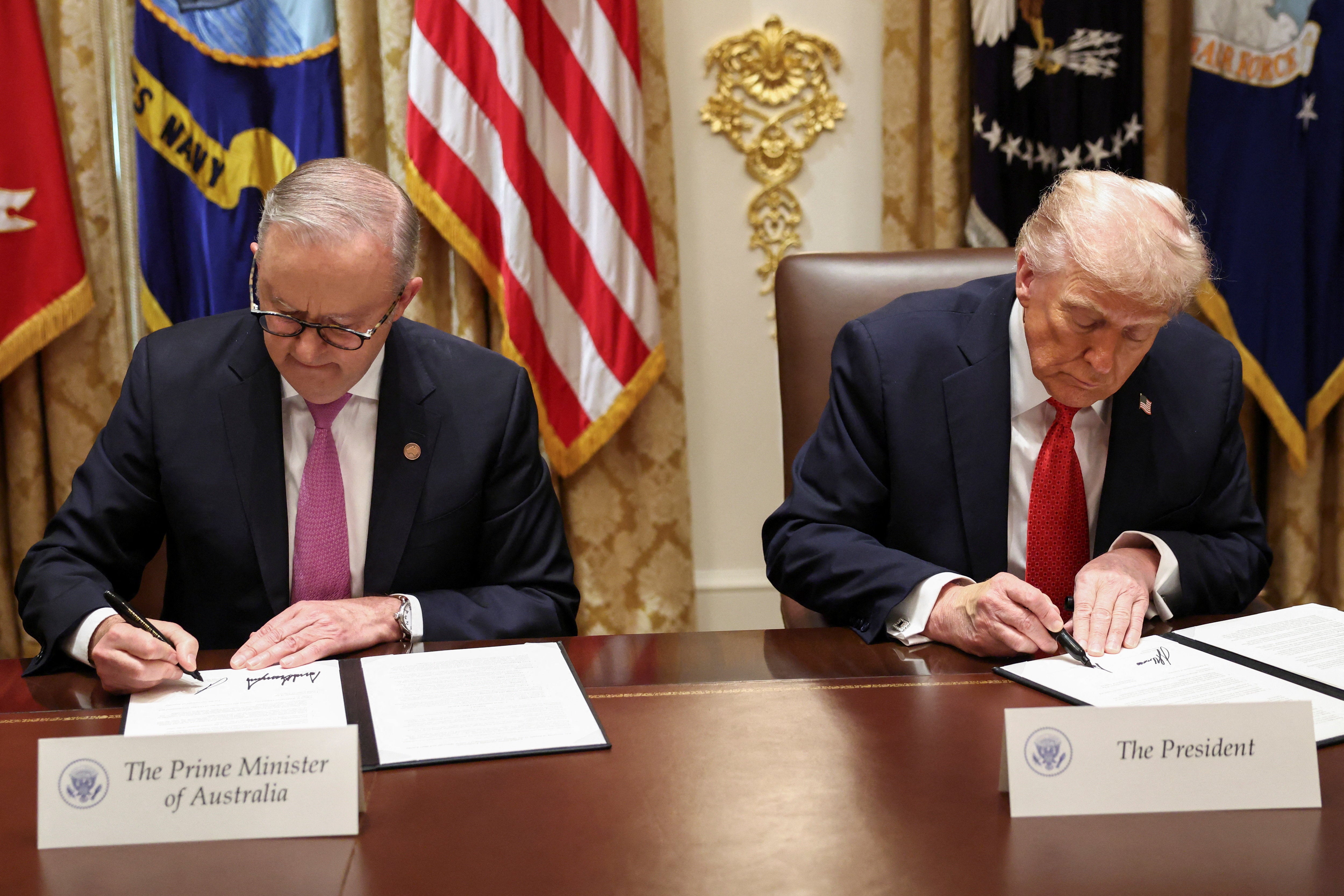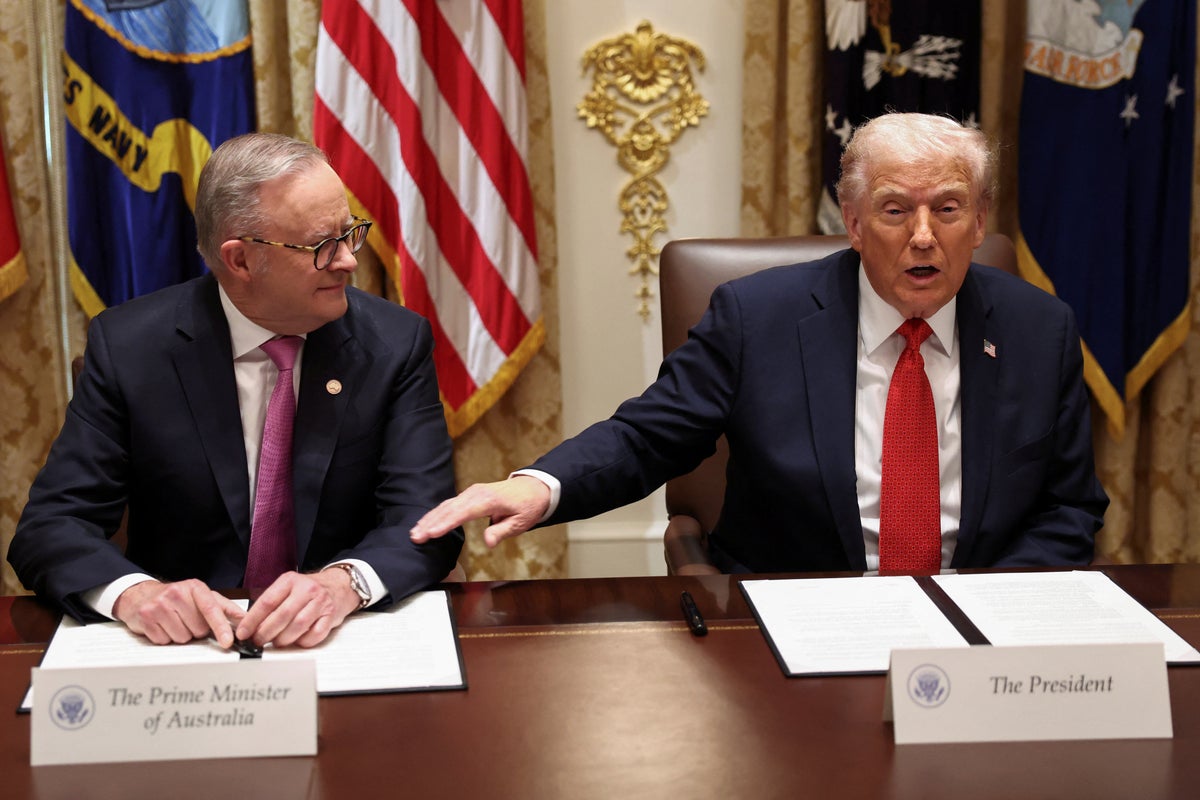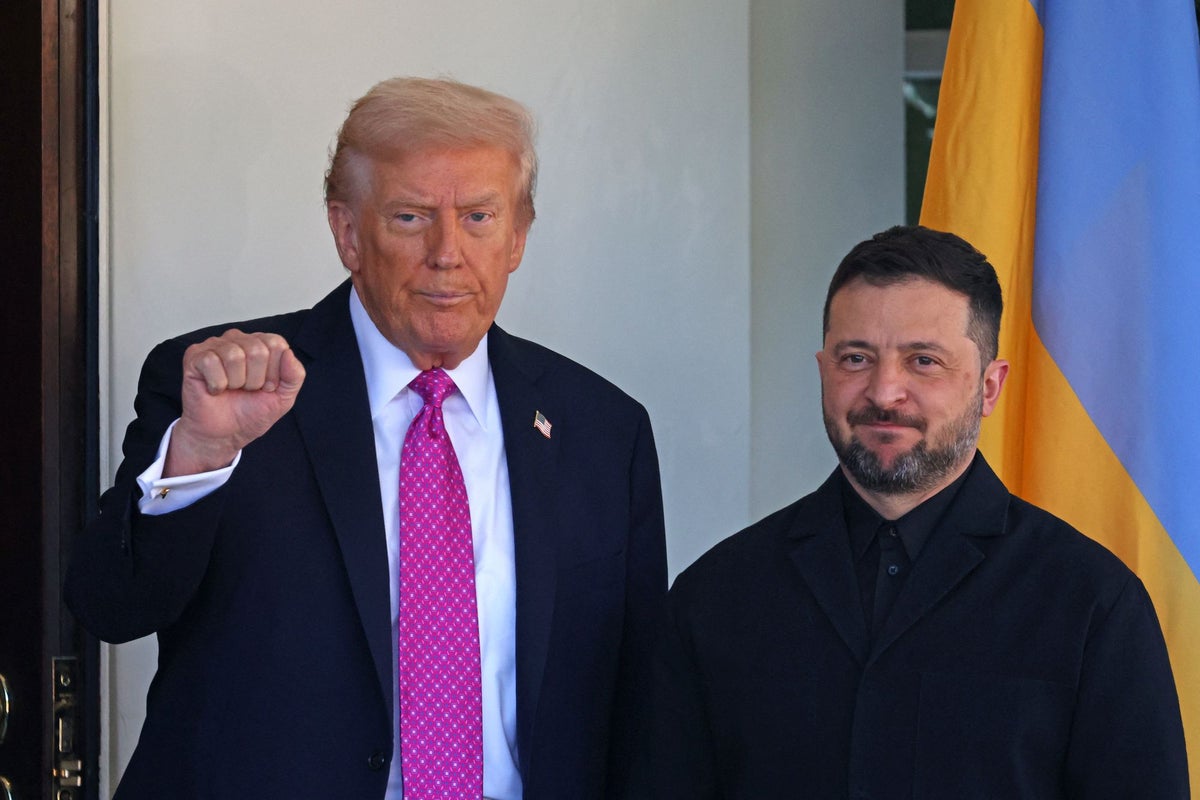President Donald Trump and Australian Prime Minister Anthony Albanese have signed a significant critical-minerals deal at the White House, as the U.S. seeks to secure Australia’s rich rare-earth resources amidst China’s increasingly stringent export regulations.
The agreement, described by both leaders as an $8.5 billion pact between the allies, was the culmination of several months of negotiations, according to Trump. Albanese stated that the deal was “just taking” the relationship between the U.S. and Australia “to the next level.”
This development follows Beijing’s recent announcement that foreign companies will now require Chinese government approval to export magnets containing even trace amounts of rare-earth materials originating from China or produced with its technology. Trump’s Republican administration views this as granting China extensive control over the global economy by dominating the technology supply chain.

“Australia is really, really going to be helpful in the effort to take the global economy and make it less risky, less exposed to the kind of rare earth extortion that we’re seeing from the Chinese,” Kevin Hassett, the director of the White House’s National Economic Council, told reporters on Monday morning ahead of Trump’s meeting with Albanese.
Hassett noted that Australia has one of the best mining economies in the world, while praising its refiners and its abundance of rare earth resources. Among the Australian officials accompanying Albanese are ministers overseeing resources and industry and science, and Australia has dozens of critical minerals sought by the U.S.
The prime minister’s visit comes just before Trump is planning to meet with Chinese President Xi Jinping in South Korea later this month.
For Albanese’s part, the prime minister said ahead of his visit that the two leaders will have a chance to deepen their countries’ ties on trade and defense. Another expected topic of discussion is AUKUS, a security pact with Australia, the U.S. and the United Kingdom that was signed during U.S. President Joe Biden’s Democratic administration.
Trump has not indicated publicly whether he would want to keep AUKUS intact, and the Pentagon is reviewing the agreement.
“Australia and the United States have stood shoulder-to-shoulder in every major conflict for over a century,” Albanese said ahead of the meeting. “I look forward to a positive and constructive meeting with President Trump at the White House.”
The center-left Albanese was reelected in May and suggested shortly after his win that his party increased its majority by not modeling itself on Trumpism.
“Australians have chosen to face global challenges the Australian way, looking after each other while building for the future,” Albanese told supporters during his victory speech.



